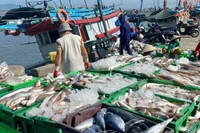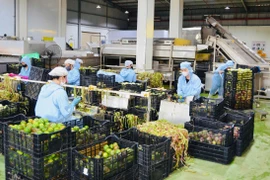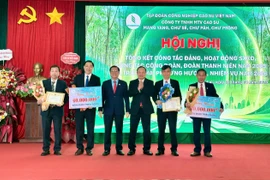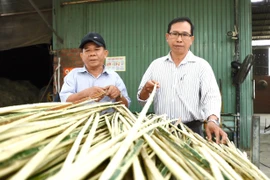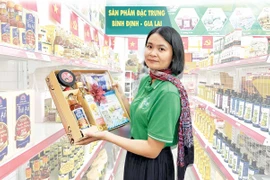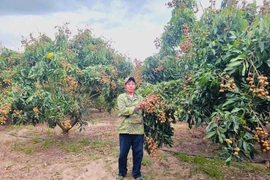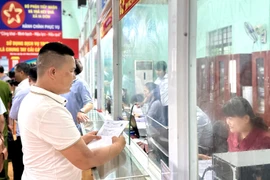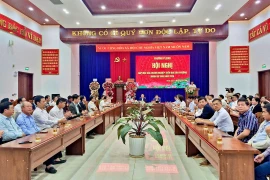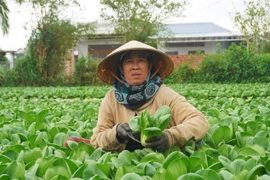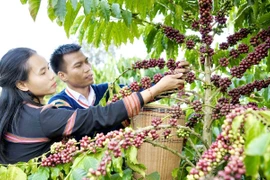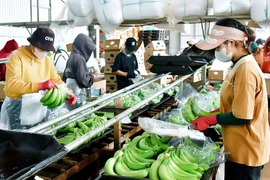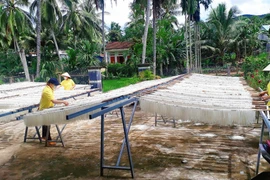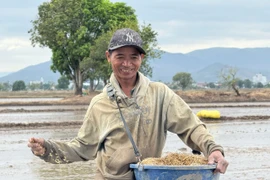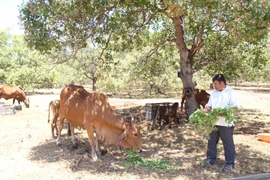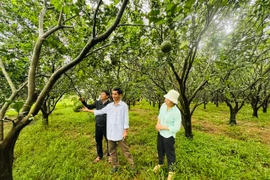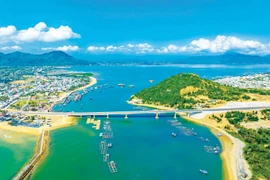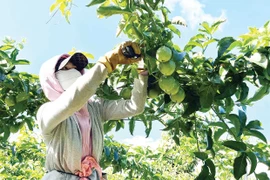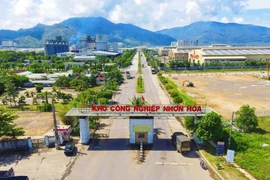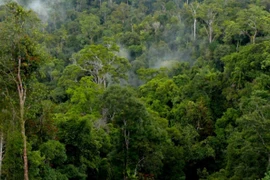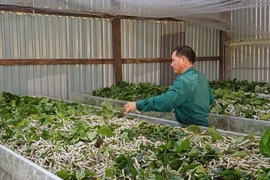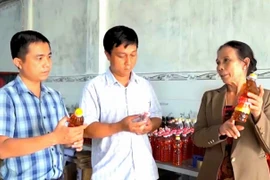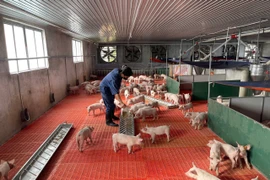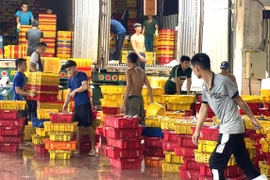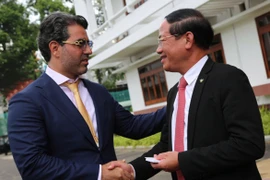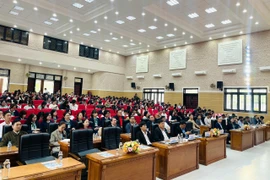If enforced, the measure would block key Vietnamese exports including tuna, mackerel, swordfish, squid, and crab, threatening hundreds of thousands of fishermen, processors, and exporters.
Economic shock looms
Nguyễn Đình Kha, Deputy Director of the Department of Industry and Trade, warned that all seafood exports to the U.S. could cease if the ruling is not resolved. He added that the loss of the American market, alongside the EU, Vietnam’s top destinations, would tarnish the country’s global trade reputation and complicate access to emerging markets in Africa and the Middle East.
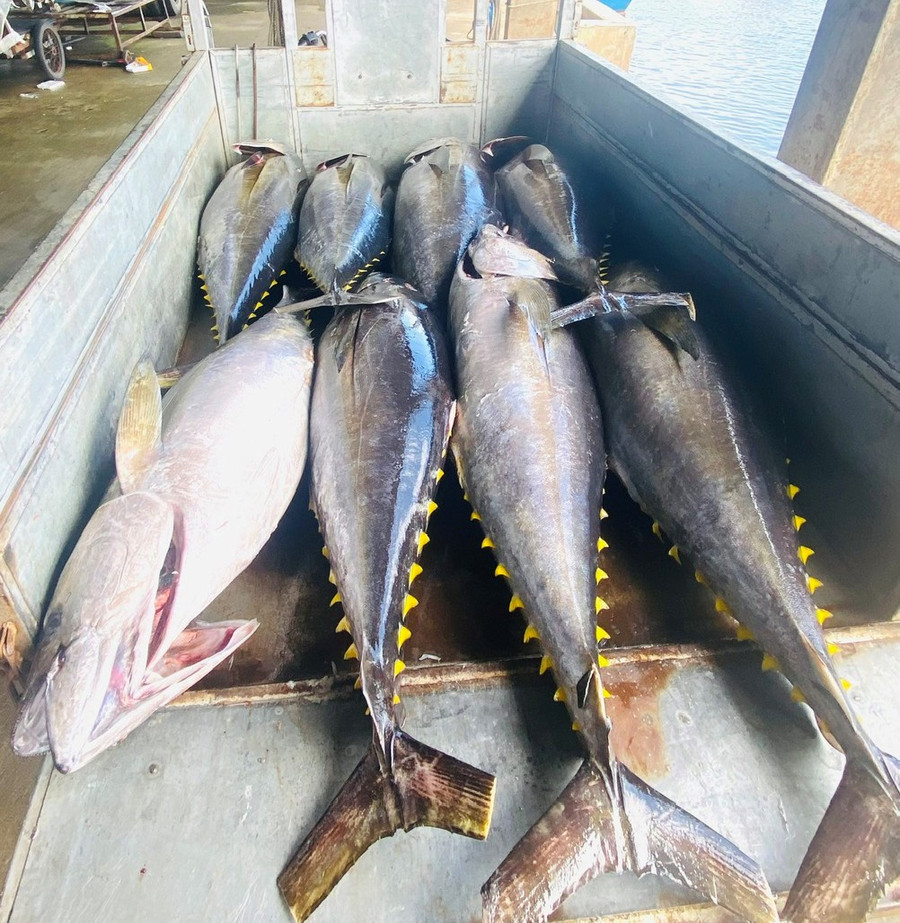
Local fishermen voiced alarm. “We always remind each other to protect dolphins, whales, and sea turtles,” said Trần Ngọc Hoang, an offshore vessel owner from Hoài Nhơn Đông. “Now with this new regulation, things are truly difficult.”
Veteran fisherman Trần Quốc Ngữ echoed concerns, saying a halt in tuna exports would devastate incomes for thousands of households and dozens of processors.
The fisheries sub-department reported that purse seine and oceanic tuna operations, producing about 14,000 tons annually, would be hardest hit. Without U.S. demand, export turnover is expected to collapse.
Industry leaders warned of cascading effects. “The U.S. is one of the largest markets. Losing it would halt production and revenues,” said Cao Thị Kim Lan, Deputy Chairwoman of An Hải Co., Ltd.
The Vietnam Association of Seafood Exporters and Producers (VASEP) noted the U.S. was Vietnam’s second-largest seafood market in 2024, worth $1.8 billion, with tuna alone contributing $387 million. A ban, it said, could wipe out hundreds of millions of dollars annually and cost tens of thousands of processing jobs.
Complicating matters, Vietnam would also face shortages of legitimate raw materials, as suppliers from Indonesia, the Philippines, South Korea, and Taiwan are subject to similar restrictions.
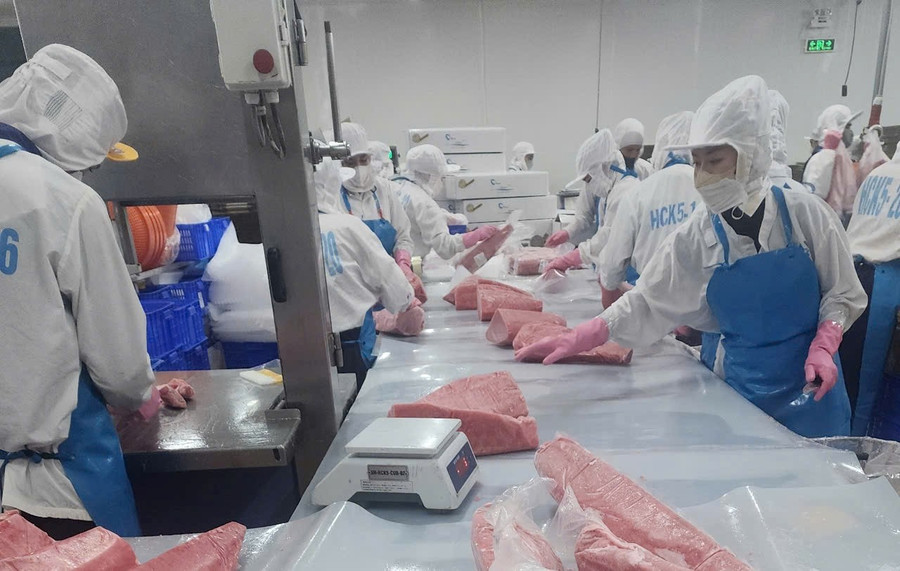
Calls for urgent solutions
In response, the provincial People’s Committee has ordered agencies to prepare a report for the Prime Minister. On September 10, VASEP urged ministries to act quickly, proposing U.S. consultancy support, an inter-agency task force, and direct negotiations with NOAA. It also advised businesses to secure certifications such as MSC and Dolphin Safe to prove compliance.
Short-term measures include importing raw materials from third countries for re-export to the U.S., though experts stressed this is only a temporary fix. Long-term solutions, they said, require reforming fishing practices, improving gear, installing GPS and AI monitoring systems, ensuring transparent catch data, and incorporating marine mammal protections into law.
Diplomatic engagement is also seen as critical, with Vietnam encouraged to work with U.S. importers and associations to secure a transitional mechanism. Businesses are meanwhile urged to diversify markets and boost investment in international certifications.
Experts cautioned Vietnam has only three months left to submit required documentation before the U.S. ban takes effect. Failure to do so could mean not only losing the American market but also facing compounded barriers, as the EU’s IUU yellow card remains unresolved.

